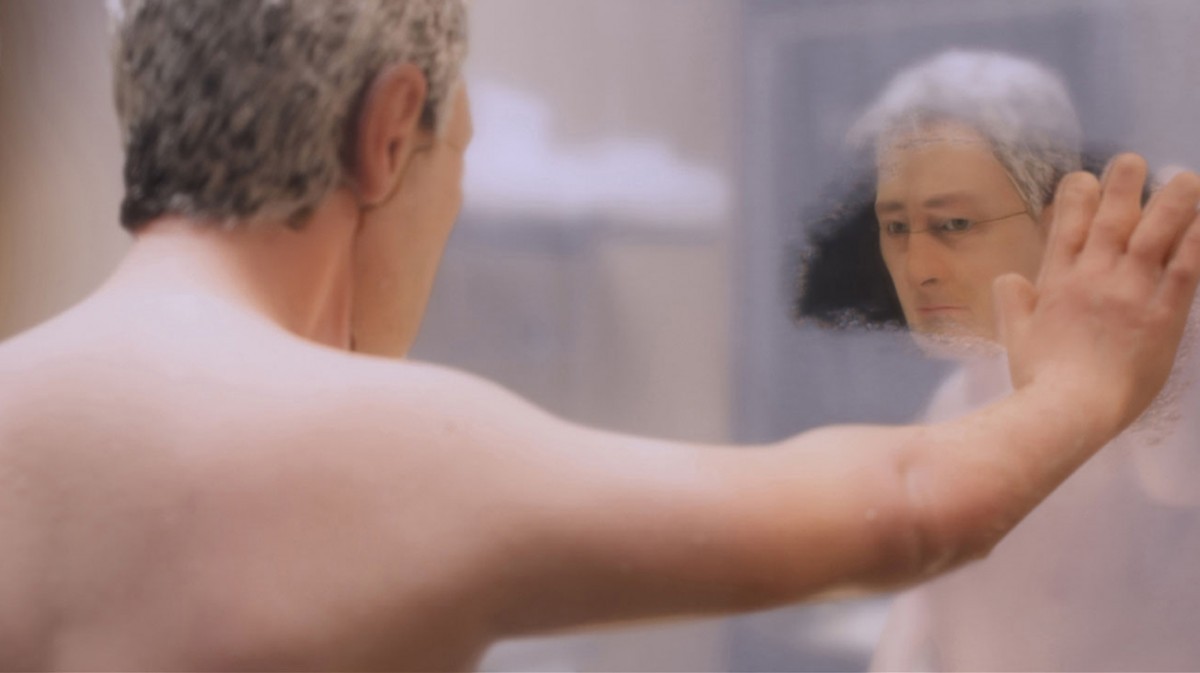|
by Luv Mehta I have to start this article by talking about Charlie Kaufman. Ever since he broke into the industry, Kaufman has always poked and prodded at the very structure of scripts, cutting and rearranging the metaphorical fabric they're woven out of. His first big hit was Being John Malkovich, the story of people vicariously living their fantasies through a Hollywood star (played by himself - Kaufman scripts always tend to attract genius casting). His second script, Adaptation, was something every film student kicked themselves for not thinking of, an exercise in metatextual narrative made long before being meta was memetic. Then came Eternal Sunshine Of The Spotless Mind, which played a romance story in reverse to justify why relationships can be worth facing their own eventual breakdown. Eventually, he went into film direction with Synecdoche, New York. Kaufman had always been interested in the inner workings of the human mind, but it was here that he showcased his obsession with mental disorders for the first time. Using a model recreation of a New York district in the same district itself (a synecdoche in Schenectady), he framed the story about a man named Cotard, suffering from Cotard's delusion - perpetually obsessed with the idea that he was close to death. And this background becomes relevant in the context of our subject of discussion, and what might be his simplest, yet his richest script yet - Anomalisa. First up, obvious mention has to be given to how amazing the pacing of the script is - for a movie about the drudgery of our protagonist's life, it keeps engaging and entertaining viewers throughout. The movie looks and sounds beautiful, with the voice actors all excellently lending their talents to some brilliantly simple stop motion puppets - whose design also makes sense while looking at the themes of the plot. And the themes really are what make it a classic. The setting here is Hotel Fregoli. The name, again, is important - it comes from Fregoli's delusion, the condition people have when they cannot distinguish between the faces and voices of everyone around them. Thus, the framing device here isn't just the hotel, it's the illness itself. Our protagonist, Michael Stone, is alone. He's a popular motivational speaker out to deliver a keynote, and most people recognise him by sight - but he is alone. His taxi driver sounds and looks the same as his wife, his ex, his hotel manager, and everyone else he meets. He's alone in a sea of faces - all a bunch of lovingly designed stop motion puppets with strangely visible seams, with the implication being that this is the way he sees the world. A release finally comes in the form of an anomaly in the crowd, a woman who stands out. A woman named Lisa. For a man used to knowing how everyone will speak, how everyone will look, how they'll react to him, he finds someone who's different. Not just in the apparent sense either - she's refreshingly honest, doesn't pretend to be anyone she's not, and has no agenda in mind. In a world of masks, the most visible face is the unmasked one. And tragedy still ultimately strikes when his own impression of her is ruined. She eats her food too loudly, which offends his taste, and her face starts to transform as a result - and in a minute, she's the mask again. A case could be made for his rejection of homogeneity in appearance and voice being superficial, yes - but a case can also be made for human beings being inextricably tied to their artifice. And even if one can't agree, it isn't necessary to do so - Michael Stone is built up throughout the movie as a very flawed individual, trying to forge a connection outside his marriage to relieve himself of the monotony of his daily life. And even in those relationships, like every other attempt they make at establishing a connection, human beings are fundamentally wired to take the artifice into consideration, while constructing their own mental image of someone else. Take that artifice away from us, and we break down. We're too flawed to look past appearances, and we ultimately drown in the sea of our own making. The human condition desires nothing more than to love and be loved, and human love is forever tethered to the senses. And that is why we are, and always will be, incomplete. And this is why Anomalisa is one of my favourite movies of all time - Kaufman showcases the sad and pathetic biases of human beings, but he does not judge us for it. He sympathizes with us, shows us our flaws and our faults, and asks us, "Isn't this unfortunate?" And, sadly, it is. It's the way we've always been, and it's the way we always will be.
Follow us on Facebook and Instagram to be notified whenever we release new articles.
Do you use an RSS reader? Even better!
0 Comments
Leave a Reply. |
Categories
All
Archives
December 2022
|


 RSS Feed
RSS Feed
